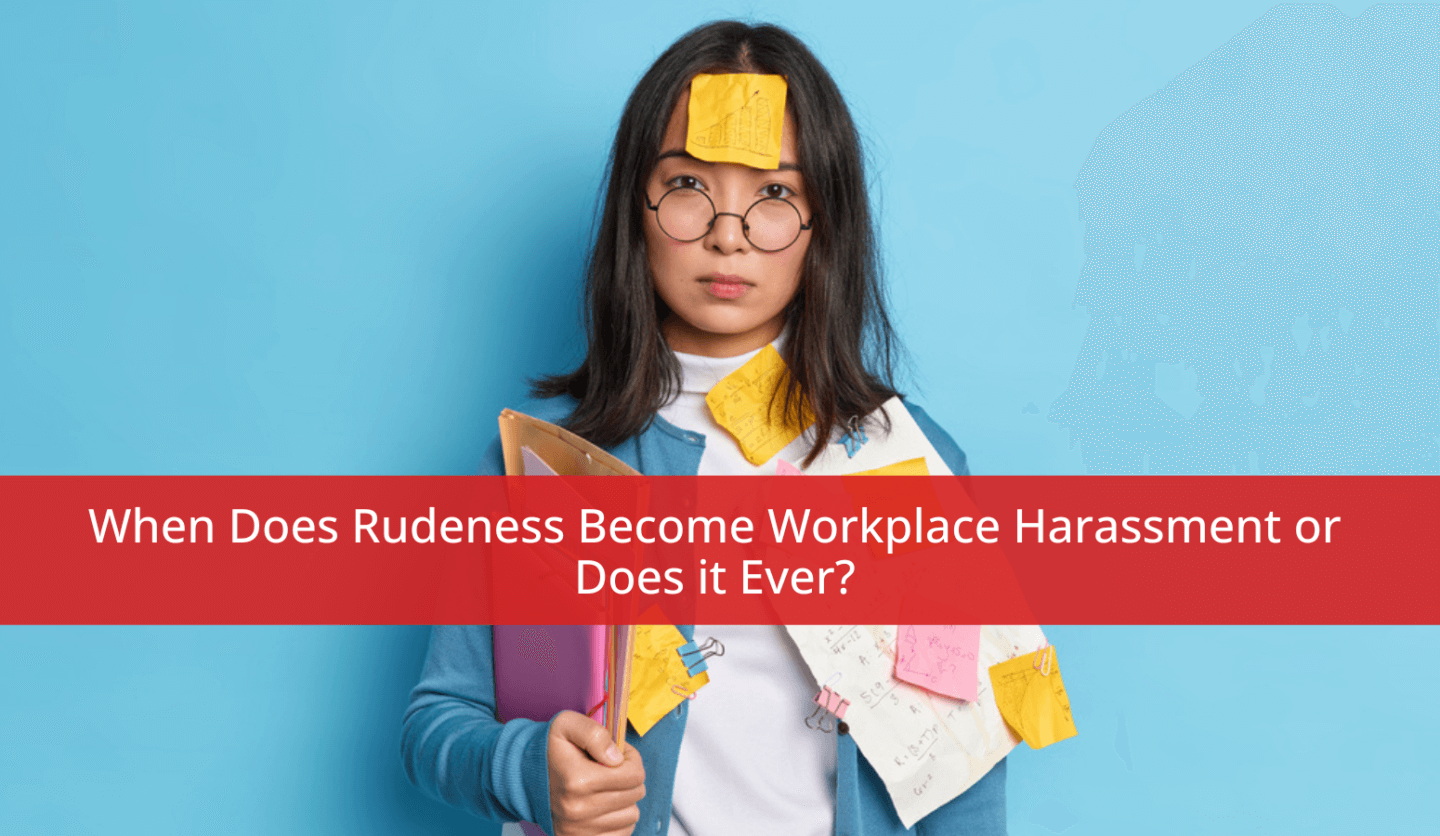
When Does Rudeness Become Workplace Harassment?
What Duties Do Employers Have Regarding Workplace Harassment?
There can be a thin line between simple rudeness at the workplace and full-on harassment. Instances of the former may arise from miscommunication or cultural differences in understanding. But there comes a point where conduct is unwelcome enough that it cannot be excused.
It’s never okay for rudeness to be based on a protected ground of discrimination. The list of such grounds is extensive, but it includes age, creed, disability, race, gender identity, and sexuality. If comments made toward you are targeted at any such grounds, it can become a human rights issue. A pattern of such behaviours may create a poisoned workplace. If egregious enough, even one incident could be enough to create a toxic work environment and violate either the Canadian Human Rights Act or the Ontario Human Rights Code.
Even if not based on protected grounds, unwelcome comments or conduct could still constitute workplace harassment under the Occupational Health and Safety Act. Directions or communications that come off as blunt or brash, especially in times of pressure, is one thing and may be expected. But when these become offensive, embarrassing, humiliating, or demeaning, then it could be argued that it has reached the level of harassment, and that the employer has a duty to investigate.
If an employee is treated bad enough, whether or not the conduct is based on protected grounds, the employment relationship could deteriorate enough such that it becomes impossible to continue. In cases like this, it may constitute a constructive dismissal, for which employees would be owed a severance package.
When Should You Seek Legal Counsel for Workplace Issues?
When facing rude and unwelcome behaviour at work, it can be stressful and difficult figuring out what your options are. If you would like an experienced employment lawyer at Whitten & Lublin to help walk you through appropriate next steps, please contact us online or by phone at (416) 640-2667 today.
Author – Sohrab Naderi



